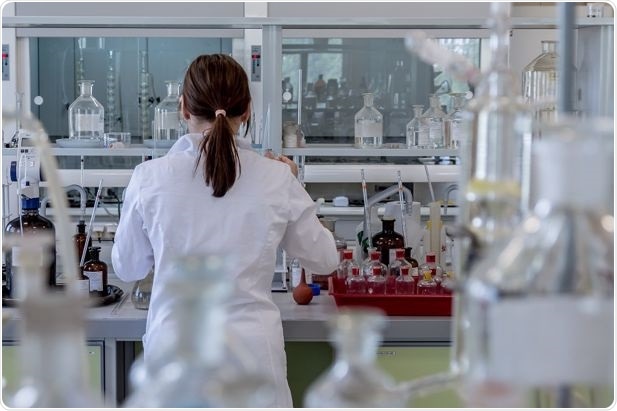Renowned cancer experts from the University of Birmingham have resolved a long-standing query of how different types of mutations in a single gene are responsible for causing various types of diseases.

Cancer research has revealed how different mutations in one gene can cause different types of diseases. Image Credit: University of Birmingham.
Headed by Professor Constanze Bonifer, a research team from the Institute of Cancer and Genomic Sciences at the University of Birmingham examined a gene called RUNX1, which is responsible for giving instructions for the growth of all blood cells and is often mutated in blood cancers.
The study results have demonstrated that the balance of different types of cells in the blood is impacted much earlier than previously assumed, which is specifically significant for families carrying the mutant gene.
Published in the Life Science Alliance journal, the study presents new possibilities for detecting early changes in cells of individuals that carry the mutation much before the manifestation of any disease—thereby raising the chances of survival in these patients.
The research work, which is the outcome of four years of studies, demonstrated that certain types of RUNX1 mutations instantly changed the behavior of other genes in blood cells, but not all the mutations. Specifically, the mutations inherited through families do not directly impact the cells but rather alter the path they follow to become other types of cells, like white blood cells and platelets.
The most important results we found came from studying mutations that run in families which predisposes their members to diseases such as Familial Platelet Disorder (FPD) and Acute Myeloid Leukaemia (AML).”
Constanze Bonifer, Study Lead Author and Professor, University of Birmingham
Bonifer continued, “AML is an aggressive cancer of the white blood cells, whereas in FPD, the ability to produce blood clots which is required to stop bleeding is impaired. Prior to this study, it was completely unclear why changes in just one gene cause so many different diseases.”
We used a cell culture system capable of generating blood cells in vitro, then induced the mutant forms of RUNX1 in these cells and immediately examined the effect on cellular behavior and gene activity. We found that every RUNX1 mutation changed cells in a different way and had a different impact on how genes responded.”
Dr Sophie Kellaway, Study Co-Corresponding Author, University of Birmingham
Dr. Kellaway continued, “What we have been able to demonstrate is that different genetic alterations in RUNX1 can send cells towards alternate paths of malignancy.”
The study was financially supported by grants from the Kay Kendall Leukaemia Fund, Blood Cancer UK, and the Biotechnology and Biological Sciences Research Council.
This detailed research shows that it’s not only a mutation that’s important in deciphering whether or not someone will develop a disease, but it’s precisely where the mutation occurs that can alter how blood cells develop and lead to disease.”
Rachel Kahn, Research Communications Manager, Blood Cancer United Kingdom
Kahn continued, “Many blood cancers are difficult to treat and have a poor prognosis. This is particularly the case for AML, which was studied in this research. Understanding more about what specific changes lead to the disease will help us to tailor treatments in the future, giving everyone the best possible chance of survival.”
The study results show that special multifactorial mechanisms are used by different groups of mutant RUNX1 proteins to cause disease and, hence, the development of new treatments will need an individual strategy.
Currently, the researchers have planned to work with clinicians as well as families that carry the mutant RUNX1 proteins to analyze patient blood cells to find out whether their discoveries in cultured cells can also be observed in patient blood cells, specifically before they develop any kinds of symptoms. The team will subsequently analyze whether they can discover ways to restore the development of normal blood cells.
Source:
Journal reference:
Kellaway, S. G., et al. (2021) Different mutant RUNX1 oncoproteins program alternate haematopoietic differentiation trajectories. Life Science Alliance. doi.org/10.26508/lsa.202000864.